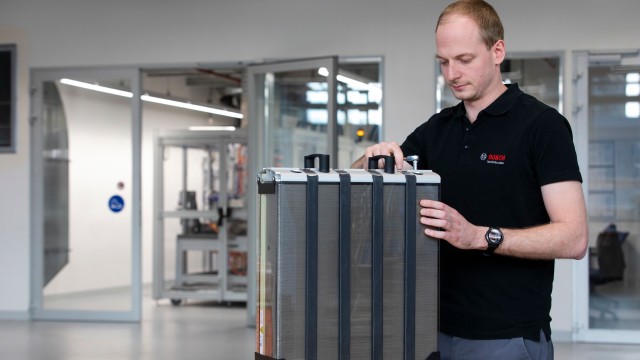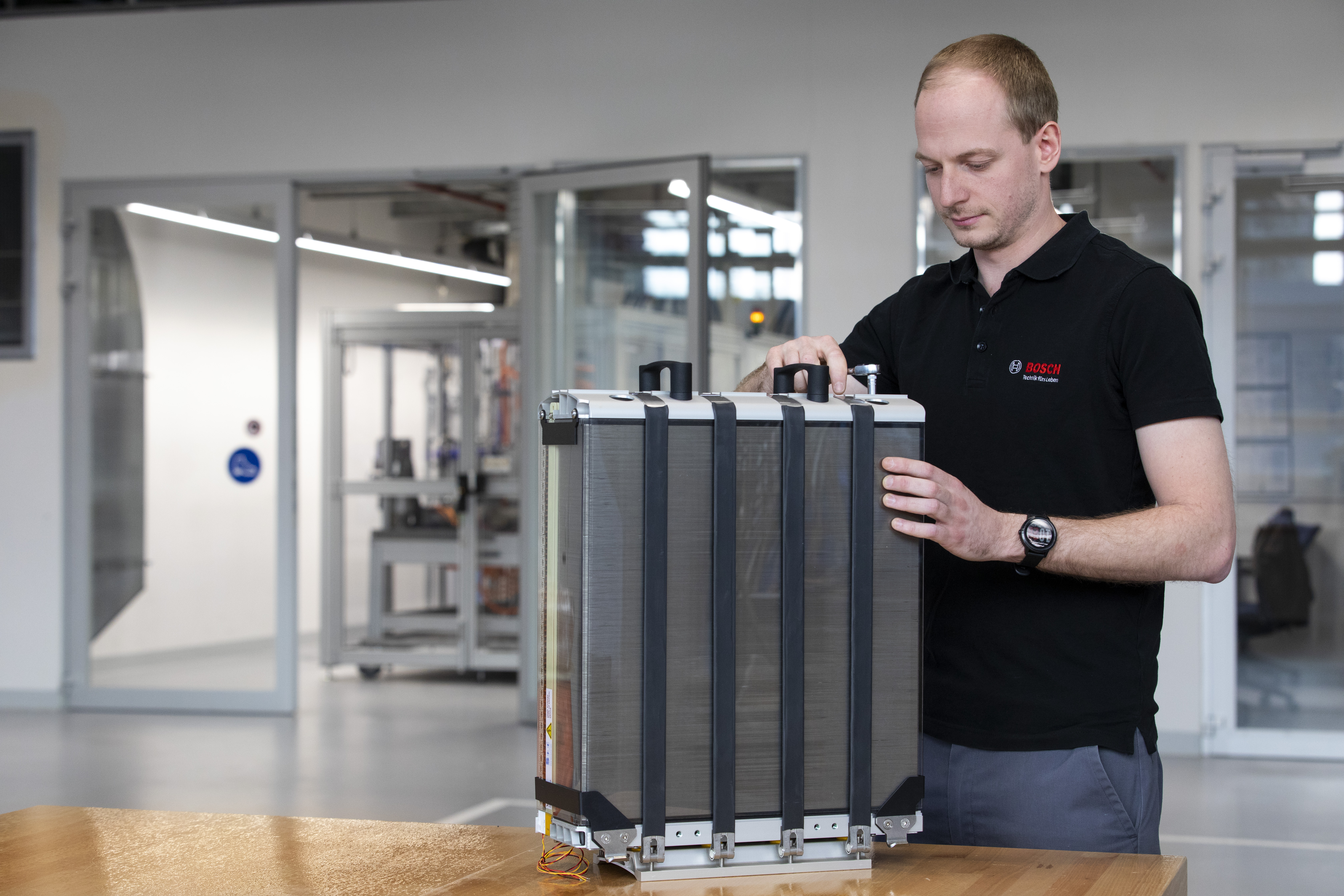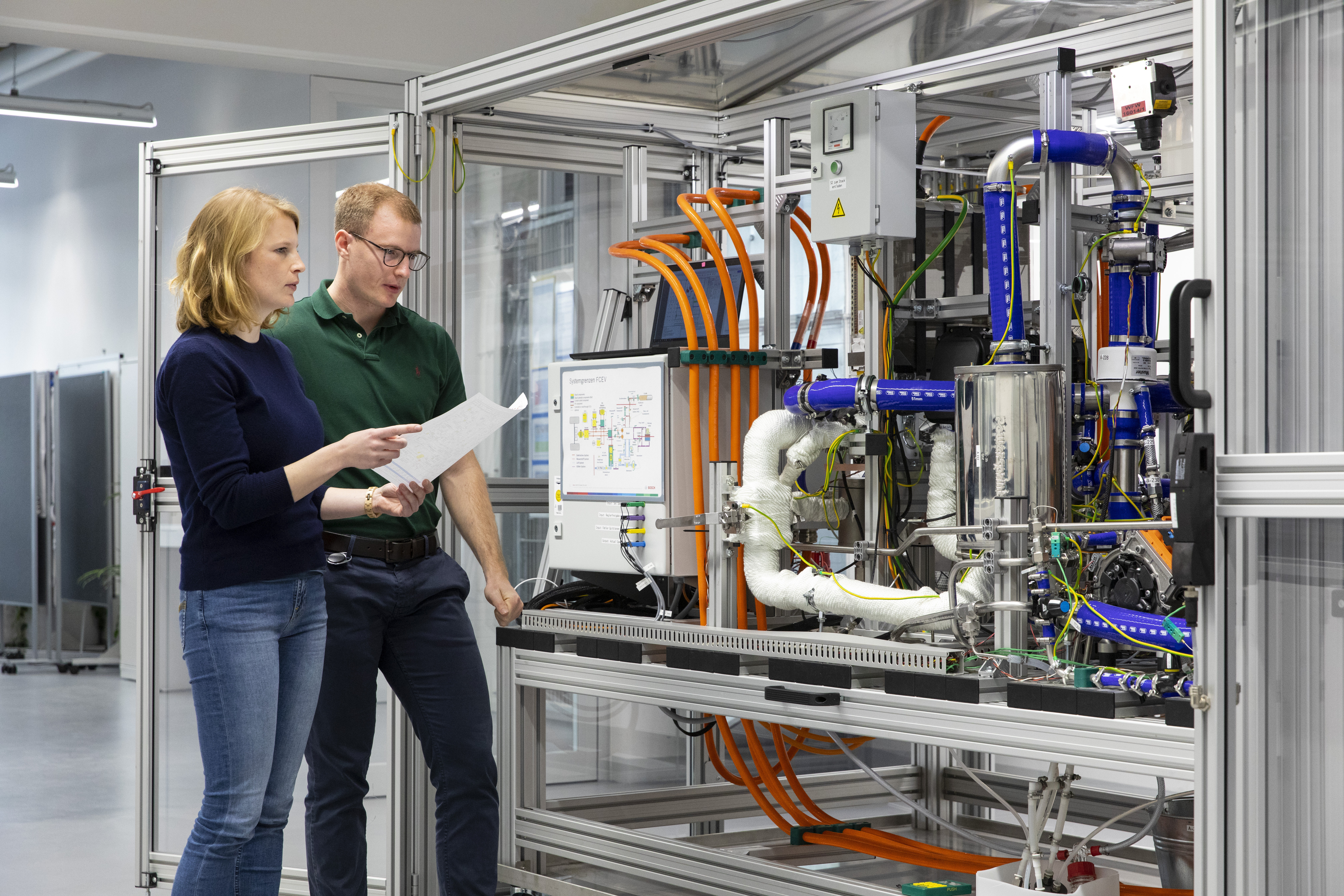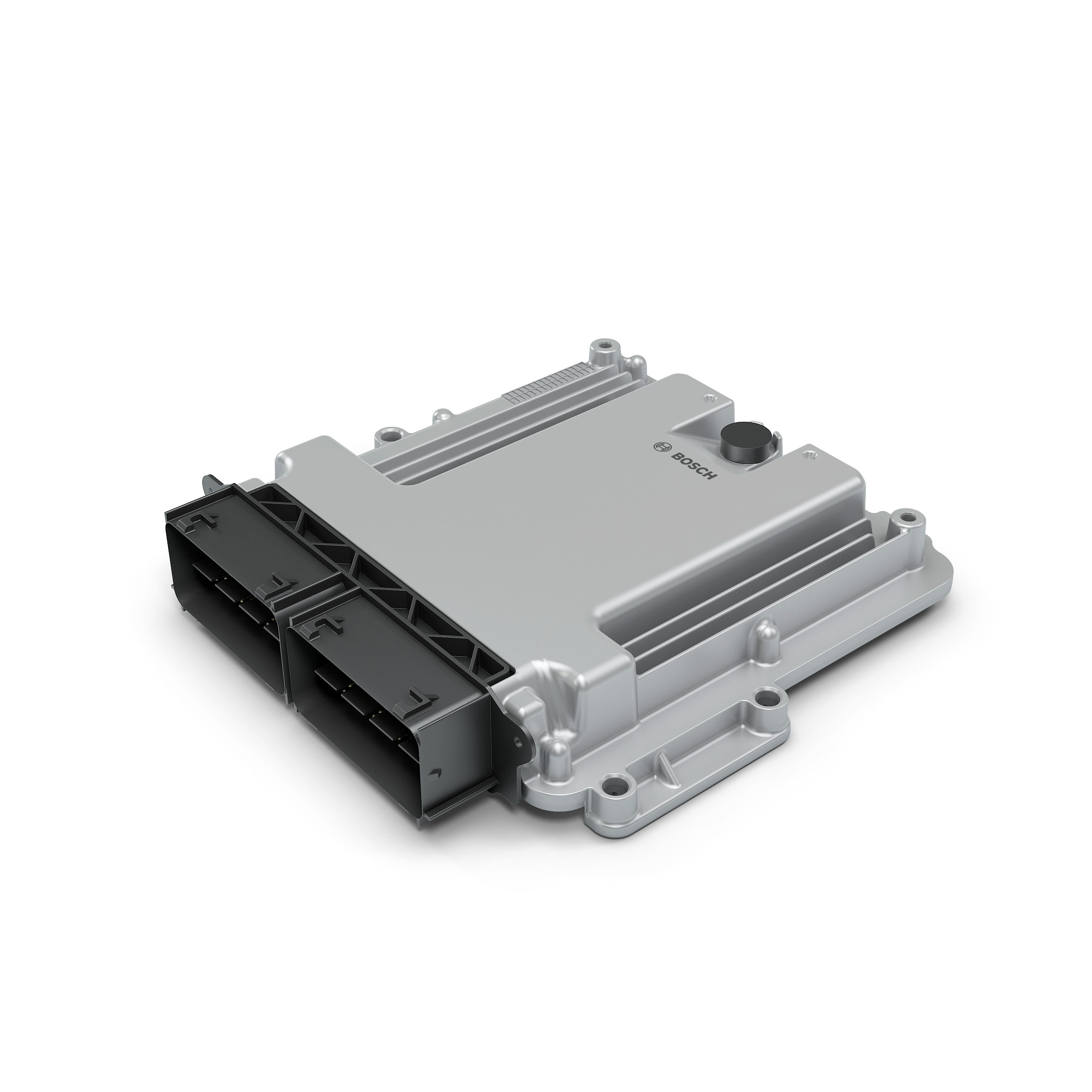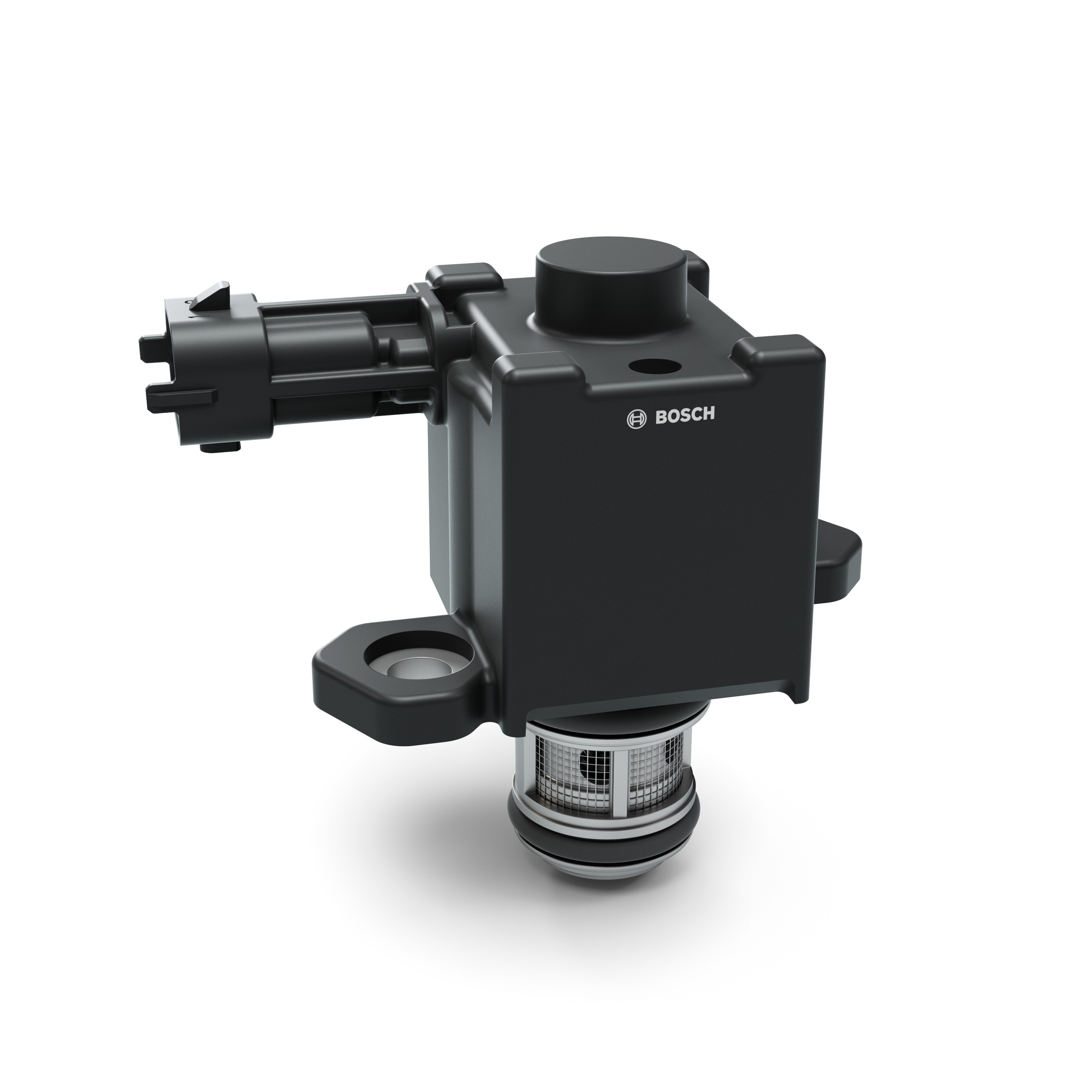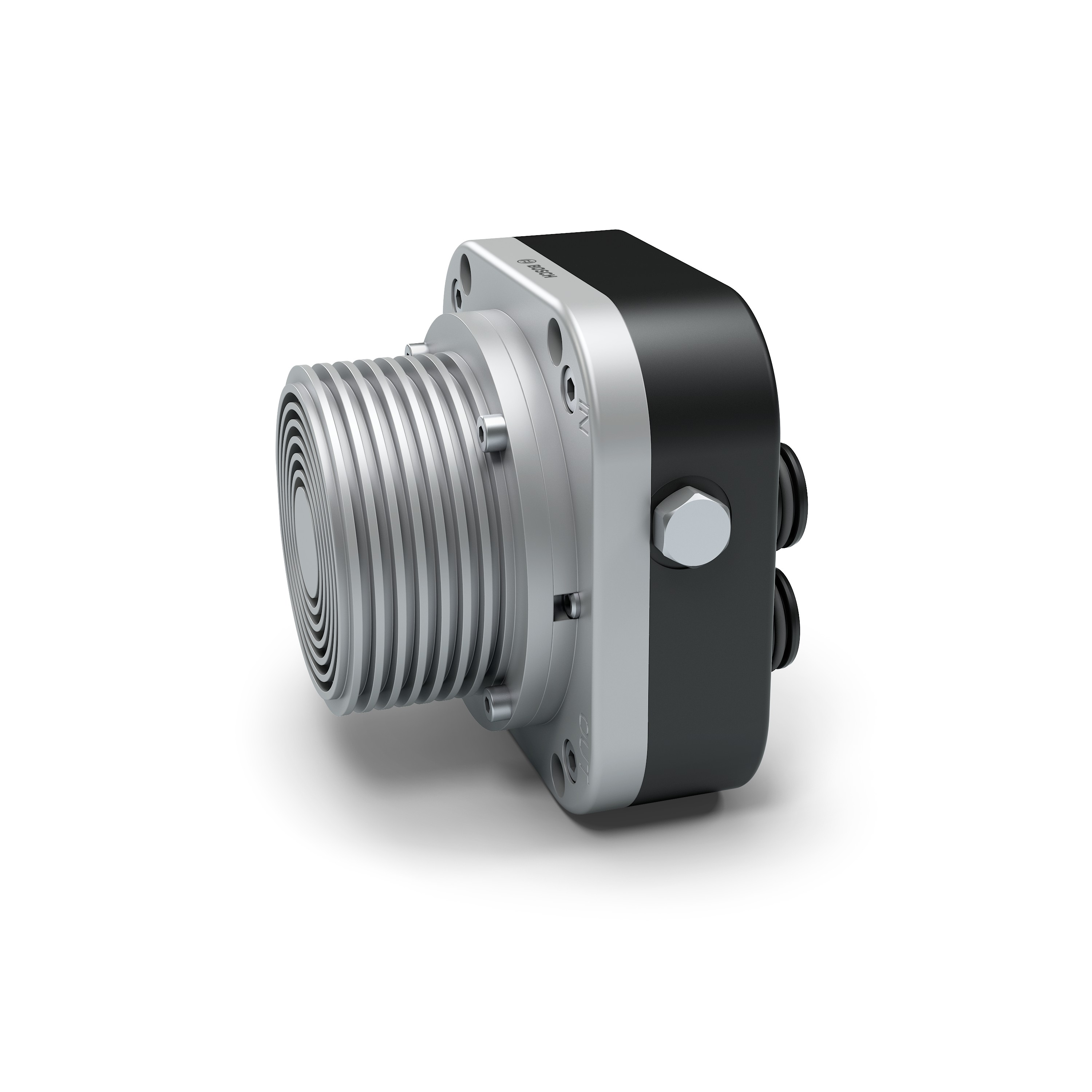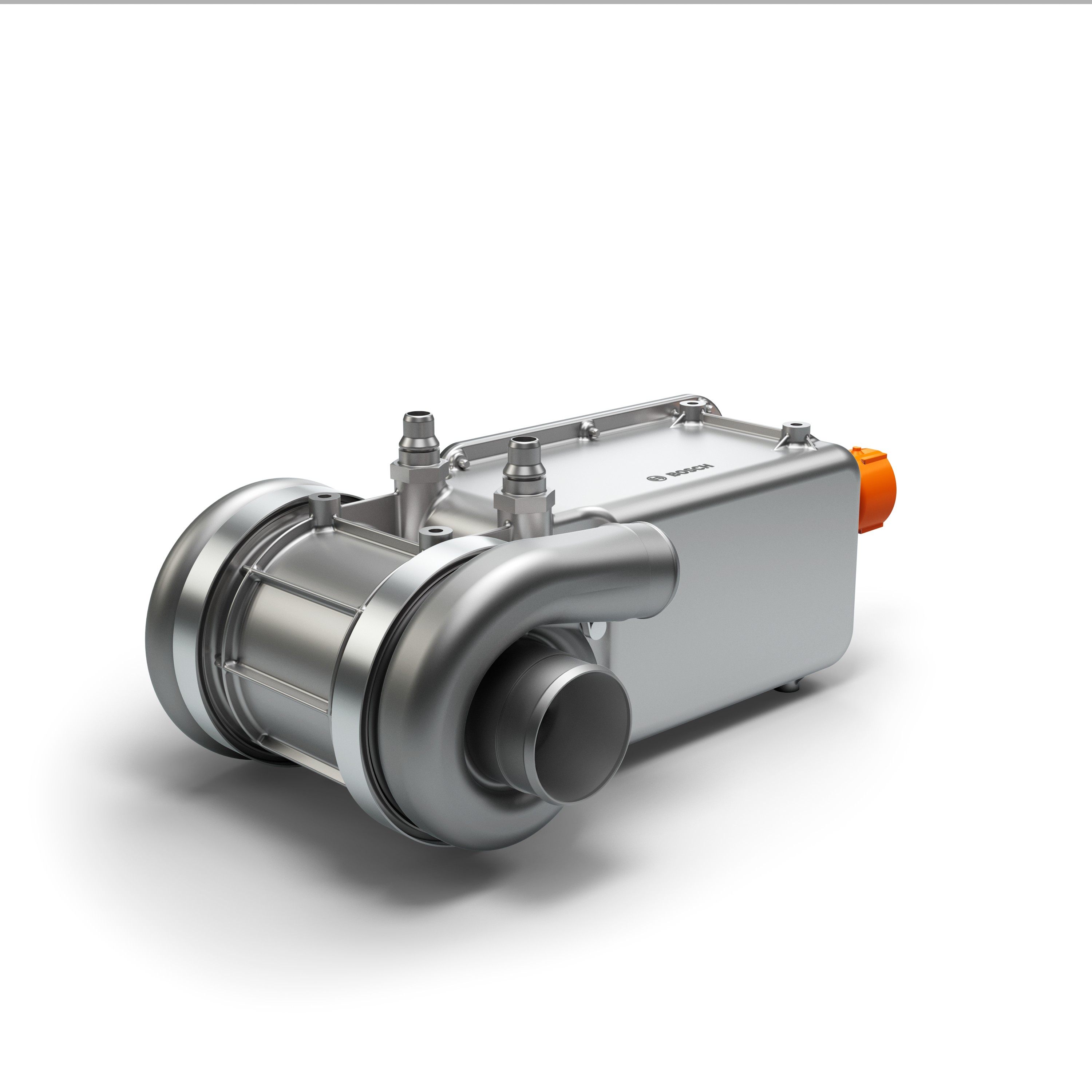Stuttgart, Germany – Bosch is entering the market for mobile fuel cells and paving the way for the breakthrough of this technology in trucks and cars. One crucial component here is the stack. As the core of the fuel cell, is converts hydrogen into electrical energy. To further improve and manufacture these stacks, Bosch has now formed an alliance with Powercell Sweden AB, the Swedish manufacturer of fuel-cell stacks. Under the agreement, the two partners will work jointly to make the polymer-electrolyte membrane (PEM) fuel cell ready for production. Bosch will then manufacture this technology under license for the global automotive market. The stack will complement the Bosch portfolio of fuel-cell components, and is to be launched in 2022 at the latest. “In the fuel-cell domain, Bosch already has a strong hand, and the alliance with Powercell makes it even stronger. Commercializing technology is one of our strengths. We are now going to take on this task with determination and develop this market,” says Dr. Stefan Hartung, member of the Bosch board of management and chairman of the Mobility Solutions business sector. Over the long term, the mobile fuel-cell business is potentially worth billions of euros for Bosch. It estimates that as much as 20 percent of all electric vehicles worldwide will be powered by fuel cells by 2030. “With the combined weight of its clout and expertise, Bosch will provide our fuel-cell technology with the chance to gain a foothold in the automotive market. We couldn’t imagine a better partner than Bosch for this,” says Per Wassén, the Powercell CEO.
Mobility is the largest Bosch Group business sector. It generated sales of 55.8 billion euros in 2024, and thus contributed around 62 percent of total sales. This makes the Bosch Group one of the leading mobility suppliers. Bosch Mobility pursues a vision of mobility that is safe, sustainable, and exciting. For its customers, the outcome is integrated mobility solutions. The business sector’s main areas of activity are electrification, software and services, semiconductors and sensors, vehicle computers, advanced driver assistance systems, systems for vehicle dynamics control, repair-shop concepts, as well as technology and services for the automotive aftermarket and fleets. Bosch is synonymous with important automotive innovations, such as electronic engine management, the ESP anti-skid system, and common-rail diesel technology.
The Bosch Group is a leading global supplier of technology and services. It employs roughly 412,000 associates worldwide (as of December 31, 2025). According to preliminary figures, the company generated sales of 91 billion euros in 2025. Its operations are divided into four business sectors: Mobility, Industrial Technology, Consumer Goods, and Energy and Building Technology. With its business activities, the company aims to use technology to help shape universal trends such as automation, electrification, digitalization, connectivity, and an orientation to sustainability. In this context, Bosch’s broad diversification across regions and industries strengthens its innovativeness and robustness. Bosch uses its proven expertise in sensor technology, software, and services to offer customers cross-domain solutions from a single source. It also applies its expertise in connectivity and artificial intelligence in order to develop and manufacture user-friendly, sustainable products. With technology that is “Invented for life,” Bosch wants to help improve quality of life and conserve natural resources. The Bosch Group comprises Robert Bosch GmbH and its roughly 490 subsidiary and regional companies in over 60 countries. Including sales and service partners, Bosch’s global manufacturing, engineering, and sales network covers nearly every country in the world. Bosch’s innovative strength is key to the company’s further development. At 136 locations across the globe, Bosch employs some 82,000 associates in research and development.
Additional information is available online at www.bosch.com, www.bosch-press.com.
